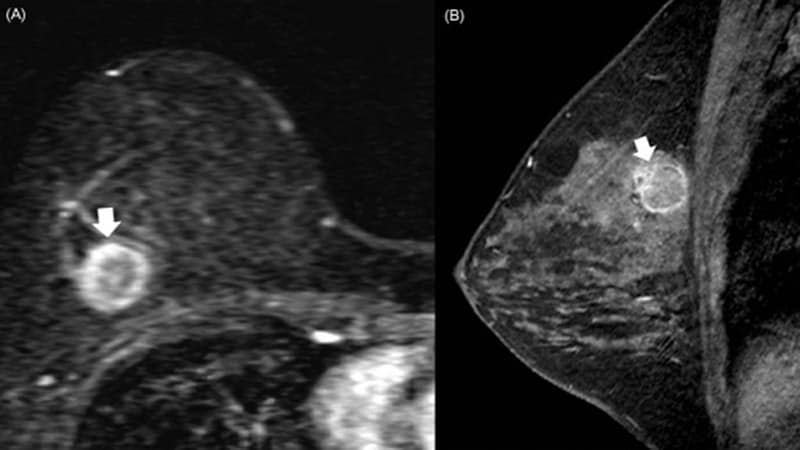Real-world, US claims-based data show major gaps in the care and management of three major neurologic disorders: Alzheimer's disease (AD), Parkinson's disease (PD), and multiple sclerosis (MS).
Investigators led by Nikki Win, PhD, medical manager/team lead, OMNI Scientific Strategy and Collaborations, US Medical Affairs, Genentech/Roche, found that patients with PD were referred to a specialist most often, followed by those with MS and those with AD.
The findings were presented on April 14 at the American Academy of Neurology (AAN) 2024 Annual Meeting.
National Neurologist Shortage
The national neurologist shortage coupled with the growing incidence of AD, PD, MS and other conditions has led AAN and other organizations to call for expanding the role of primary care physicians in the diagnosis and management of neurologic disorders, the leading global cause of disability.
"These neurological conditions are increasing in prevalence and there's a limited number of neurologists, so we wanted to understand what this looks like in the US," Win told Medscape Medical News.
"There is a need to understand the patient journey from primary care to neurology care, from presentation of a suspected neurological disorder to diagnosis, referral to a specialist, and the time elapsed before the specialist visit for AD, MS, and PD in the US," Win added.
Timely and accurate diagnoses of neurologic disorders can optimize treatment outcomes and because many of these diseases are first detected during a visit with a primary care physician, so it is important to understand the timeline from the initial visit to a specialist referral, the investigators noted.
Using claims data from the Optum Normative Health Information database, researchers identified 48,525 adults with AD, 26,431 with PD, and 8169 with MS who received a diagnosis from a primary care physician between 2016 and 2021.
They examined the proportion, timing, and demographic factors associated with referrals from primary care clinicians or other healthcare providers to specialists including neurologists, neurosurgeons, psychiatrists, and geriatric medicine specialists.
Results showed that patients with PD were referred to a specialist most often (53%), followed by those with MS (42%) and those with AD (27%).
Individuals with AD waited the longest for a specialist referral, with a median of 10 months between the time of referral and the first specialist visit compared with 5.7 months for PD patients and 2.6 months for MS patients.
"Some patients with common conditions like AD, MS, and PD don't see a neurologist, and when they do, it can take as long as 10 months," said Win.
Using zip code heatmaps, researchers found that the proportion of referrals for all neurologic disorders was higher in the Midwest and Northeast, whereas patients in the South and West were less likely to receive a referral.
Referrals for AD were low nationwide, except for some areas of Michigan and New England. California had the lowest referral rate for MS, followed by regions in the South and Northeast. Patients with PD living in the Midwest and Northeast were more likely than those in the West to receive a specialist referral.
Previous studies have reported regional shortages of neurologists, said Win. "Our data seem to correlate that in terms of the areas with lower referral patterns, but as to whether that is causative or correlative, we don't know."
Odds of referral were also influenced by demographic characteristics such as sex, age, race, and ethnicity, investigators found.
For example, there were fewer referrals with increasing age across all three neurologic disorders, and men were more likely than women to be referred for AD and PD. Compared with White patients, PD referrals were less likely among African American, Asian, and Hispanic patients and AD referrals were less common among Asian and Hispanic patients.
Insurance status also affected referrals. People with MS and PD who had commercial insurance were referred more often than were those with Medicare Advantage, said Win.
She also noted, "Additional research is needed to understand how being referred or not being referred to a neurologist actually impacts patient treatment, care and outcomes."
Neurology Challenges
Commenting on the research, Thomas Vidic, MD, a community neurologist in Elkhart, Indiana, and clinical professor of neurology at Indiana University School of Medicine at South Bend, told Medscape Medical News that he was surprised by the variation in wait times for patients.
This, he said, could reflect a study limitation or a higher comfort level among primary care doctors in treating dementia.
With respect to MS, Vidic said that he believes primary care physicians may not be uncertain about prescribing the approved medications for the disease because there are so many of them.
In addition, AD patients are older and perhaps less accepting of being referred to a specialist that may be hours away.
The bottom line for Vidic, though, is the lack of specialists. "It comes back to the fact we're not doing a good job of having community neurologists available to take care of these problems," he said.
The issue of community neurologist shortages was underlined by the study's findings about geographic gaps in specialist referrals across the country, he said.
Neurologists make up about 2% of the medical workforce and this has remained static for some time, Vidic noted. Meanwhile, people are living longer and developing more neurologic diseases.
Vidic also pointed to the lack of neurology training programs. "There has not been a significant change in the number of programs in the last 10-15 years," he said.
Study funding was not disclosed. Win reports receiving personal compensation for serving as an employee of Genentech and has stock in Genentech. Vidic reports no relevant financial disclosures.

.webp) 2 weeks ago
5
2 weeks ago
5


























 English (US)
English (US)